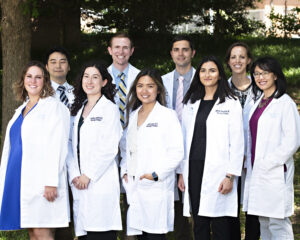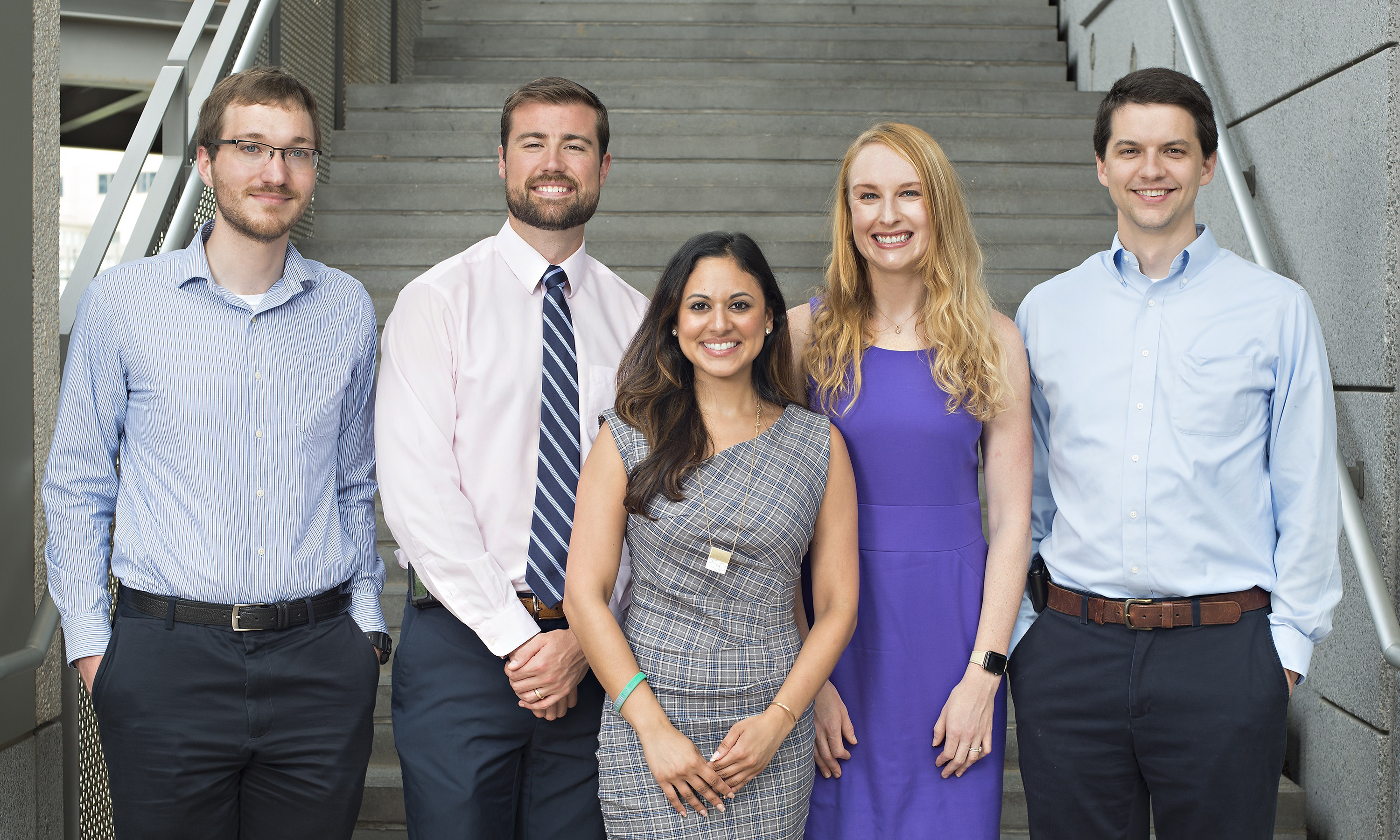Residency Programs
Adult Neurology

The UNC Adult Neurology Residency Program is a four-year (PGY-1 to PGY-4), categorical training program in which all 4 years are spent at the main UNC Medical Center and our outpatient clinics.
Child Neurology

The UNC Child Neurology Residency Program is an ACGME-accredited program (PGY1-PGY5) that accepts two categorical residents per year.
The Department of Neurology at the University of North Carolina School of Medicine and UNC Hospitals offer training programs in adult neurology and child neurology. Both programs are accredited by the Accreditation Council for Graduate Medical Education (ACGME) and approved by the American Board of Psychiatry and Neurology (ABPN) for board eligibility in neurology or in neurology with special competence in child neurology.
The neurology residency programs are designed to provide residents with a broad-based training in clinical neurology in preparation for careers in either academic neurology or clinical practice.
During the three (advanced child) or four (categorical adult) years of neurology residency training, the neurology resident has extensive exposure to clinical neurology. Residents progressively obtain greater independence and autonomy as they gain more experience in managing patients with a variety of neurologic problems.
The Learning Environment
The faculty and staff are committed to facilitating resident education, training, and maintaining a collegial and nurturing environment conducive for learning. This is accomplished through a strong faculty presence in all aspects of resident training.
- Daily rounds on the inpatient services include both bedside and didactic teaching.
- Outpatient experiences in different sub-specialty clinics under direct supervision of a sub-specialist attending.
- Resident longitudinal clinics with their own patient panel where they develop a physician/patient relationship over time and learning to manage the patient’s neurologic disease in the context of psychosocial environment and learning to utilize the interdisciplinary resources to help deliver care.
Professional Development
Professional development of residents is greatly emphasized and each resident is assigned a faculty adviser/mentor at the start of their training. Residents meet with their advisers throughout the year to review individual progress in the residency program and to discuss their career goals.
Academic Achievement
Residents follow a structured and comprehensive curriculum focusing on different aspects of clinical neurology and basic neuroscience during their three or four years of residency. Residents take the Residency In-service Training Exam (RITE) each year and at least one oral exam each year. Residents commonly play the role of the teacher of other residents, medical students, and allied health care professionals. Residents are encouraged to engage in scholarly activities during the course of their training.

